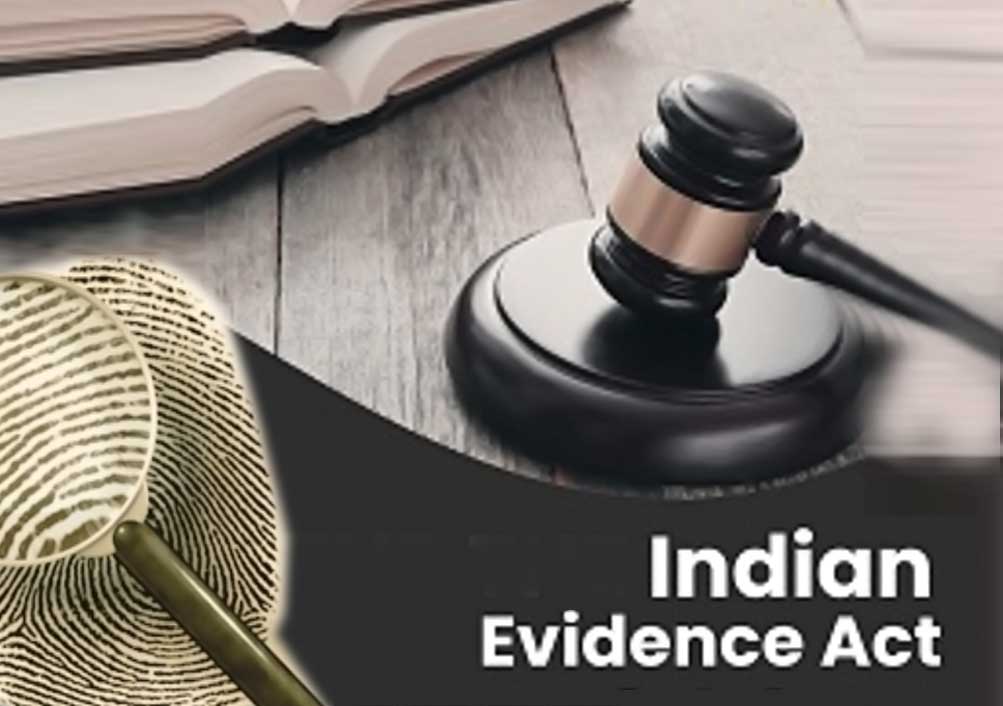In Crl.A.No.65 of 2020-MAD HC- If witness is unable to read and write, Courts should record evidence by signs: Madras HC sums up principles relating to examination of witnesses who are unable to speak u/s 119 of Evidence Act
Justice Sunder Mohan [22-09-2022]

Read Order: RAVICHANDRAN V. STATE
Mansimran Kaur
Chennai, October 10, 2022: As per Section 119 of the Indian Evidence Act, if the victim cannot speak he/she can give evidence in any manner which can make it intelligible, as by writing or by signs made in open Court, the Madras High Court has clarified.
The Single-Judge Bench of Justice Sunder Mohan allowed the present appeal instituted against the judgment of the Sessions Judge, Tiruppur, The appellant along with his wife were tried for the offence under Section 307 and 502(ii) of IPC.
The Single Judge was of the view that the evidence disclosed that the second witness had a grudge against the appellant for charging exorbitant fees for the treatment and not giving proper treatment and thus it was highly unsafe to render finding of guilt on the basis of the evidence on record,
The Trial Court acquitted the appellant's wife for the offenses charged against her. The appellant was found guilty for the offences under Section 307 and 506(ii) IPC. The appellant was sentenced to 10 years R.I and directed to pay a fine of Rs.2000/- for the offence under Section 307 IPC and sentence to undergo 5 years R.I for the offence under Section 506(ii) IPC.
The case of the prosecution was that P.W.1, victim was deaf and dumb and when she was five years old, her parents took her to the appellant for treating her by adopting meditation techniques and to cure her illness. It was alleged that the appellant and his wife took a sum of Rs.1,89,000/- for the purpose of the treatment and demanded further sum without giving proper treatment.
It was further alleged that they caused harm to P.W.1, victim by attacking her with weapons and had poked her all over the body with needles and caused injuries on the head.
It was also alleged that the appellant and his wife also attacked the private parts of the first witness, victim.
Subsequently, the case was registered for the offences under Section 384 and 307 of IPC on the file of the respondent police, on the complaint given by the second witness, father of the victim.
The Court after giving anxious consideration to the submissions made and to the evidence present on record, noted that the charge and the evidence revealed that the victim suffered from speech and hearing impairment.
In such circumstances, the record of evidence of the deposition of the first witness, did not reveal as to how and in what manner her evidence was recorded by the Court. Section 119 of the Indian Evidence Act was compiled by the trial Court. However, even assuming that the deposition of P.W.1 was recorded as mandated under the Indian Evidence Act, the Court found that the allegations made by the first witness in her deposition was completely contrary to the charge, the Court noted.
In furtherance of the same, the Court noted that the first witness had not stated about the alleged attack on her private parts and attack by using dangerous weapons and poking by needles.
On the other hand, she stated that she was slapped, beaten by wooden logs and was not given proper food and proper place to sleep. Further, the appellant harmed her by using a cat.
The reading of the evidence disclosed that the evidence was more of a perception of a five year old girl. The deposition besides being different from the charge and the original complaint also appeared to be improbable and opposed to common-sense.
The second witness who was the father of the victim admitted in his evidence that he had never visited the first witness when she was living with the appellant and his wife. Therefore, it was not his case that he was a witness to the alleged occurrences relating to the harm caused by the victim, the Court noted.
It was further noted by the Court that besides the above infirmities in the deposition of the witness, which makes them unreliable,the Court also noted that the trial Court failed to comply with the mandatory provision of Section 119 of the Indian Evidence Act.
As per Section 119 of the Indian Evidence Act, if the victim cannot speak he/she can give evidence in any manner which can make it intelligible, as by writing or by signs made in open Court. The Trial Court has not recorded as to whether her evidence was made in writing or by signs, the Court noted.
The provision to Section 119 of Indian Evidence Act stipulates that if the witness is unable to communicate verbally, the Court shall take the assistance of the interpreter or a special educator in recording the statement and such statement shall be video-graphed.
In light of the observations stated above, the Court stated that in view of the violation of the mandatory procedure under Section 119 of the Indian Evidence Act and in the absence of any record in the deposition to show as to how and in what manner, the evidence of first witness couldnot be relied upon.
That apart, even assuming that the evidence of the victim was recorded in a proper manner her evidence does not inspire confidence for the reasons stated earlier. The evidence discloses that second witness had a grudge against the appellant for charging exorbitant fees for the treatment and not giving proper treatment. It is highly unsafe to render finding of guilt on the basis of the evidence on record, the Court stated. In the result, this Criminal Appeal was allowed.
Sign up for our weekly newsletter to stay up to date on our product, events featured blog, special offer and all of the exciting things that take place here at Legitquest.




Add a Comment